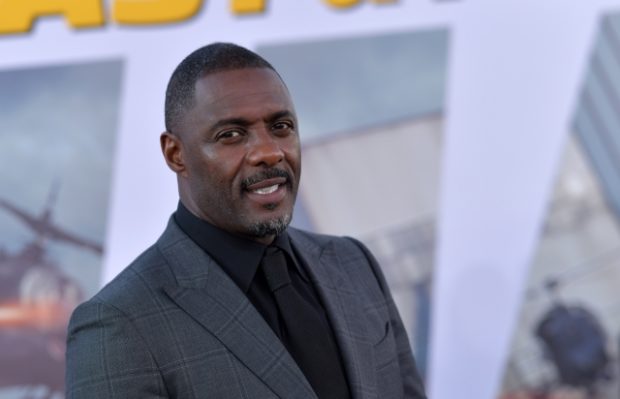
English actor Idris Elba is one of the few Black actors cast as the lead character of a British TV program, according to a new report. Image: AFP/Chris Delmas.
An alarming statistic. While the British and Academy Film Awards (BAFTA) has recently announced new rules to boost diversity in film awards, a new report has shown that Black people make up only 4.7% of lead acting roles in British television, a phenomenon that is also pervasive behind the scenes, where those who identify as Black account for 1.6% of writers working in British TV.
For its report, the Creative Diversity Network has interviewed over 30,000 individuals, who collectively made over 600,000 contributions to British TV productions broadcast between August 2018 and July 2019.
Researchers found that people who identify as Black, East Asian, or other ethnic groups (BAME) are making more contributions onscreen than off-screen. Over the last three years, the overall proportion of onscreen contributions of BAME groups to United Kingdom programs have increased from 21.8% to 22.7%.
Despite this encouraging result, the survey pointed out that people identifying with Mixed, Black and other ethnic groups are more likely to appear in a supporting, rather than a lead role.
They are also making proportionally fewer contributions during primetime, which is when the most watched and high-profile programs are broadcast. Surprisingly, those who identify as South Asian are the only ethnic group whose onscreen representation is higher in primetime programs (6.9% versus 5.4%).
The survey also showed the lack of representation of BAME groups is particularly visible off-screen, especially when it comes to technical and craft roles across U.K. TV production. People who identify as East Asian or other ethnic groups contributed to less than 1% of camera roles, compared to 87.5% for those identifying as white.
Set design and hair and makeup are production areas where these inequalities are even more alarming, as there were so few contributions made by people with South and East Asian backgrounds that the Creative Diversity Network was unable to publish data on them.
“In some respects, the findings of our analysis are startling, even shocking; but at the same time, its findings are not entirely new – they are now just evidenced” Deborah Williams, CDN’s executive director, wrote in the report. “It is clear that there is so much more work to be done, and it is vital that we now find ways to bring together all of the conversations, debates, data and evidence to build on our foundation stones.”
Some 5,000 members of Britain’s film and TV industry signed an open letter last June calling on gatekeepers to “banish weak excuses” to tackle structural and systematic racism onscreen and off-screen. It was a strong call to action to which the BBC has answered by announcing that from April 2021, it will require 20% of talent working on its new TV commissions to come from diverse backgrounds. CC
RELATED STORIES:
British actors and actress demand an end to ‘systemic racism’ in the UK film industry
‘Star Wars’ actor John Boyega joins protest against racism: ‘Black lives have always mattered’